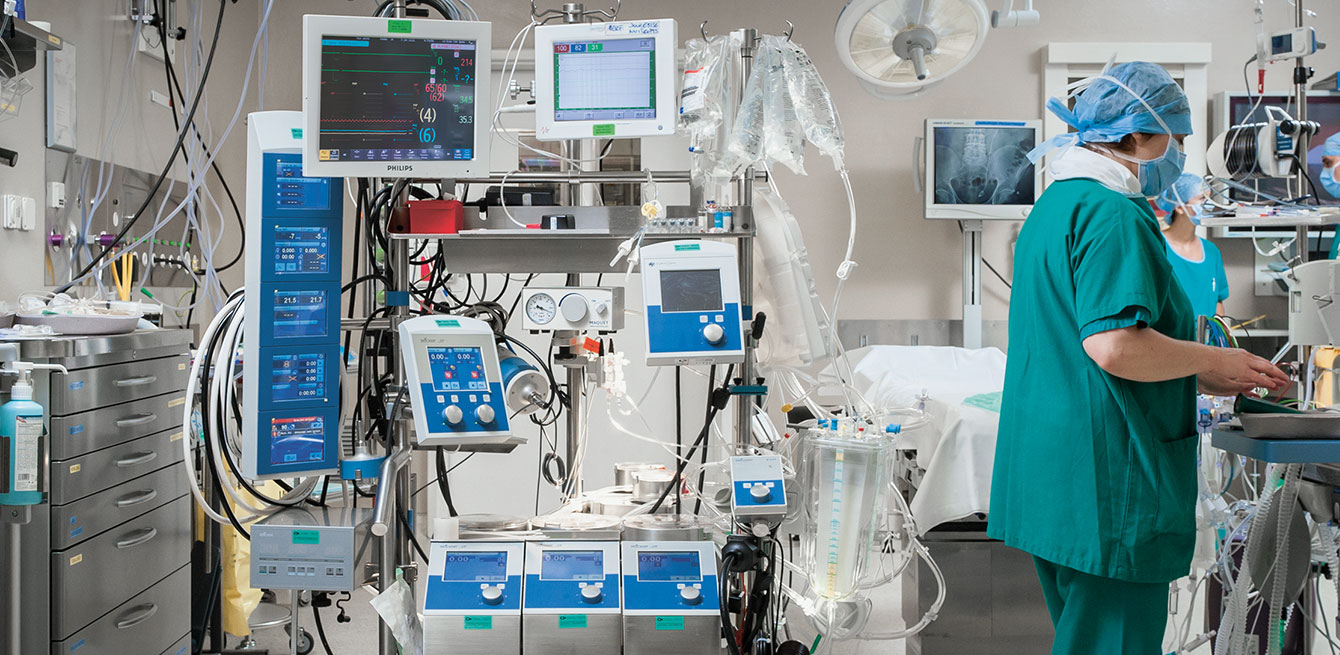
Eleonora De Stefano is chief perfusionist, a relatively unknown profession despite its crucial role during major heart surgery.
Video footage from the newspaper "24 Heures"
Eleonora De Stefano stumbled onto her field in 2002. “I planned on studying medicine and surgery in Siena, where the university required an entrance exam. I was accepted, but only for the perfusionist option. I didn’t even know what it was!” But she was soon fascinated by her medical technical training, which combined both academic and practical internships. “Our general classes were similar to those in medicine, including anatomy, physiology, pharmacology, chemistry, etc. And we were introduced to the reality of cardiac surgery right in the first year.”
That is where perfusionists are essential. They specialise in extracorporeal circulation using the heart-lung machine, which maintains systemic perfusion, ensures the exchange of gases, and regulates body temperature. Blood is collected from the systemic venous side, oxygenated, and then sent back to the aorta or another major artery. Pulmonary circulation is circumvented during complex procedures in which surgeons need to operate on an unbeating heart, such as heart transplants, coronary artery bypass surgery and cardiac valve replacement.

As a perfusionist, Eleonora De Stefano monitors the various parameters of extracorporeal circulation and makes sure the patient’s physiological needs are met.
In intensive care, perfusionists also play a key role in managing cardiac and respiratory support systems for patients awaiting an organ and immediately following the transplant.
The reality of the job involves complex and delicate operations. “Implementing an extracorporeal circuit has risks. There are several possible techniques, which differ with each patient. You have to be very careful about which option you choose. Our job is a bit like applied fluid mechanics”, says Eleonora De Stefano. She regularly participates in humanitarian missions in countries such as Mozambique, Cambodia and Senegal to share her knowledge.
The discipline requires the utmost concentration and meticulousness, and a strong personal commitment. “We begin early in the morning, at 7:00, to install the machine in the operating room, assist throughout surgery and manage the post-operative procedures of stabilising the patient and re-equipping the machine.”
No one can replace a perfusionist. At the CHUV, these specialists work in shifts to be available 24 hours a day, seven days a week. The team comes from countries around the world. “There is a real shortage of perfusionists as the field is relatively unknown. Finding people with experience who are immediately operational is difficult. Plus, there are no official federal training programmes,” says this Italian native from Calabria, who joined the CHUV in 2006. This should change with the first federal training programme offering European certification set to launch in Zurich in September 2015. The CHUV, a leading training centre in the field, is expected to play an active role. ⁄